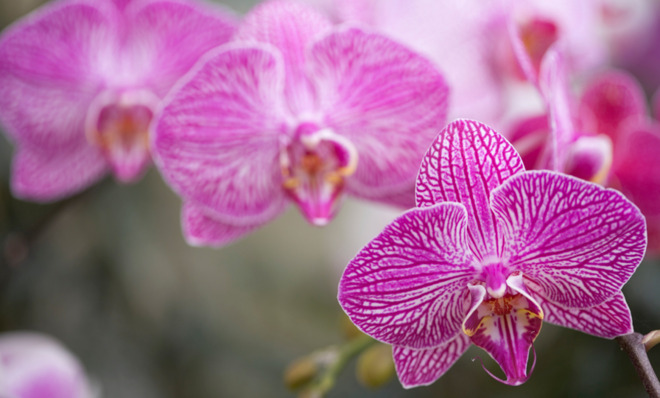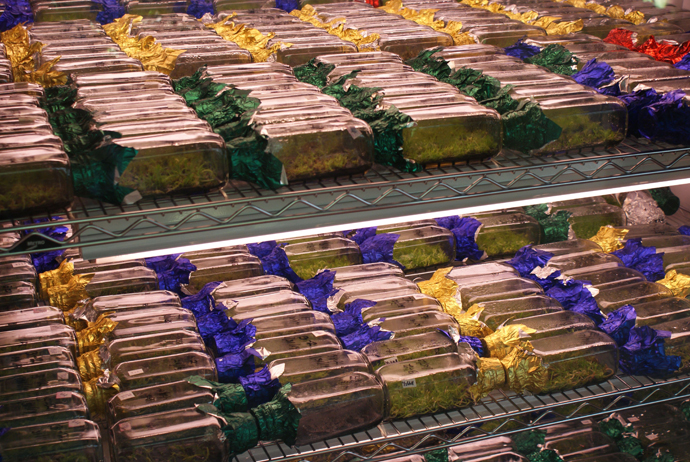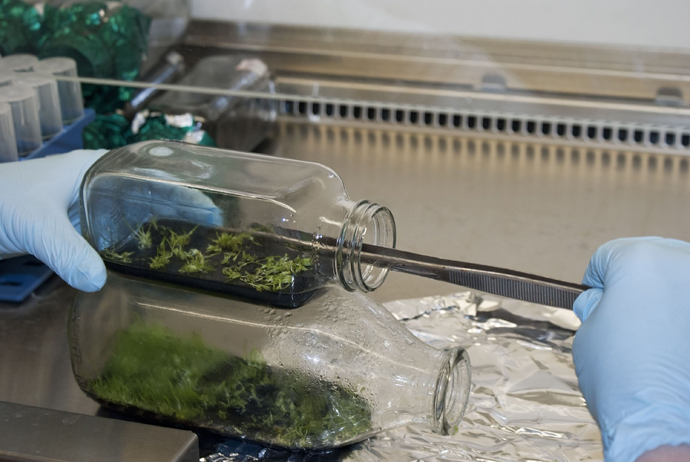The quest to save Florida's orchids from extinction
One scientist aims to combat decades of over-harvesting and illegal poaching by hand-growing 1 million of the exquisite plants

A free daily email with the biggest news stories of the day – and the best features from TheWeek.com
You are now subscribed
Your newsletter sign-up was successful
The orchid has long been a coveted symbol of beauty and luxury. Indeed, there was a time when orchid obsessions spurred manic collecting habits across the globe, reaching such a spasm of fetishization that the term "orchidelirium" was coined.
Today, orchidelirium is totally unsustainable. Indeed, many orchid species are endangered, if not nearing outright extinction.
In the 1800s, Florida's native orchids filled the Everglades and trees with pink, orange, and white petals. But once the railroads arrived in the latter part of the 19th century, orchids were plucked from their roots and shipped north for sale. People believed that the supply of this awe-inspiring plant was endless. After all, orchids are the largest group of plants in the world, with more than 25,000 identified species.
The Week
Escape your echo chamber. Get the facts behind the news, plus analysis from multiple perspectives.

Sign up for The Week's Free Newsletters
From our morning news briefing to a weekly Good News Newsletter, get the best of The Week delivered directly to your inbox.
From our morning news briefing to a weekly Good News Newsletter, get the best of The Week delivered directly to your inbox.
"Collecting back then didn't matter so much," said Roger Hammer, an award-winning naturalist, photographer, and author. It's believed that back in the early 1900s, the American botanist John Kunkel Small could pluck a bunch of orchids and when he turned back, could hardly tell he had taken any, Hammer said.
Orchids continued to be exploited well into the 1900s, even as their habitats were destroyed to pave way for housing and roads. Soon, orchid populations dwindled and many orchid species became endangered.
Thanks to the environmental movement of the 1960s, national laws and international treaties were passed that made it illegal to harvest orchids. But that didn't stop smugglers such as John Laroche, a plant dealer who was arrested for stealing rare orchids in the swamps and is the central figure in Susan Orlean's 1998 best-seller The Orchid Thief. Authorities continue to strengthen monitoring techniques, adding things such as motion detecting camcorders that are focused on orchids in the swamps.

One dedicated Florida lab is also trying to reverse this troubling orchid-killing trend, at least locally, by hand-growing orchids.
A free daily email with the biggest news stories of the day – and the best features from TheWeek.com
In the Micropropagation Lab at Fairchild Botanical Gardens in Miami, rows of rectangular glass jars filled with orchid sprouts lay on their sides on tall metal shelves, baking under grow lights.

Researchers and volunteers work quickly to move these mini incubators to a sterilized enclosure, know as a laminar flow hood, where they can safely separate the plants.

Once separated, the plants are given a few more months in the lab to establish themselves. Once substantial enough, the plants are transported to Fairchild's greenhouse, where they will finally, if slowly, ease into the outside world.
That laborious process is the heart of The Million Orchid Project, the brain child of Fairchild director Dr. Carl Lewis, who plans to repopulate south Florida with the plant species.
"This is an experiment in urban restoration," Lewis said. "It's another layer in conservation to see if native orchids can be restored in the busiest parts of the city."
Fairchild researchers are using techniques from commercial orchid growers so that they can produce even more than their goal of 1 million. There is also an intense research component to the project to ensure that the specific fungi necessary for the orchids to thrive are present around urban environments.
"Orchid seeds are like dust. If they fall on the right habitat with the right fungus, they'll germinate," Hammer said. "And people want to see them out there."
Amy Kraft is a print and radio reporter based in New York. She reports on science and the environment for publications including Scientific American, Discover, Popular Science, Psychology Today, and Distillations, a podcast out of the Chemical Heritage Foundation. She is currently working on a book of humor essays. You can check out more of her writing on her blog Jaded Bride.
-
 The Olympic timekeepers keeping the Games on track
The Olympic timekeepers keeping the Games on trackUnder the Radar Swiss watchmaking giant Omega has been at the finish line of every Olympic Games for nearly 100 years
-
 Will increasing tensions with Iran boil over into war?
Will increasing tensions with Iran boil over into war?Today’s Big Question President Donald Trump has recently been threatening the country
-
 Corruption: The spy sheikh and the president
Corruption: The spy sheikh and the presidentFeature Trump is at the center of another scandal